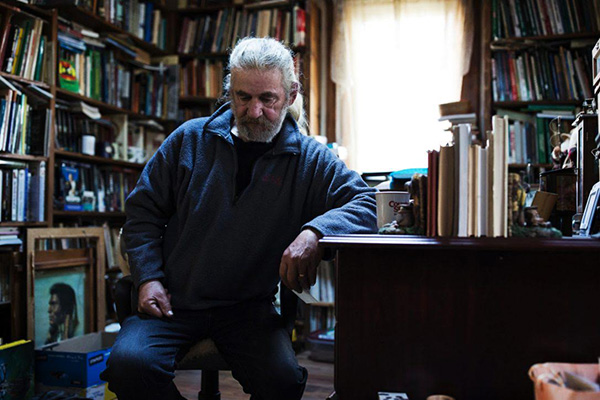2017 Honourable Mention

Reporter: Sara Mojtehedzadeh
Photographer: Melissa Renwick
Web Designers: Paul Watson and Cameron Tulk
Video Editor: Kelsey Wilson
Team Editor: Frances Kelly
In dozens of front page stories in 2016, the Toronto Star exposed what critics call the quiet dismantling of Ontario’s worker compensation system. For over a century, that system has been predicated on injured employees giving up their right to sue their bosses in exchange for a fair shot at compensation.
Sara Mojtehedzadeh’s reporting revealed a troubling shift away from that model — a shift that has implications for the entire social welfare system, which ultimately picks up the tab if injured workers do not receive compensation.

To date, her investigative work has exposed:
- The widespread use of “paper doctors” who review injured worker’s claims and make recommendations on entitlements despite having never personally assessed the claimant;
- How Workplace Safety and Insurance Board decisions slashing benefits based on “pre-existing conditions” are routinely overturned as unlawful by the board’s own independent appeals tribunal, forcing workers into years-long legal battles to win entitlements they were owed in the first place;
- How the WSIB hired a US-based doctor to review its policy on permanently injured workers’ benefits, leading to a shift toward blaming workplace injuries on pre-existing conditions. The same doctor is embroiled in a lawsuit in the U.S. for allegedly defrauding car accident victims by blaming their injuries on other ailments;
- How the WSIB’s secretive Drug Advisory Committee operates with almost no transparency, leaving doctors and injured workers in the dark about what prescriptions are covered by workers’ compensation;
- How injured workers with chronic stress are being systematically denied benefits, despite the WSIB’s own independent tribunal ruling the policy is unconstitutional;
- How complaints to the provincial ombudsman about the WSIB have jumped by almost 20 per cent over the past year, and the number of injured workers receiving help for serious injuries has been slashed in half over the past five years;
- How the board’s return-to-work programs often force workers into so-called phantom jobs before they are ready — often against the medical advice of their treating physicians;
- How the compensation system frustrates workers living with chronic and sometimes terminal occupational diseases.
Over the course of the year, the WSIB repeatedly sought to deflect the criticism raised in Sara’s reporting — but Sara persisted. As a result, the WSIB has committed to review its drug policies and its treatment of mentally ill workers.
Sara consistently put a human face to these stories, fielding hundreds of calls and emails from workers in crisis. A standout was a multimedia series about former workers of General Electric Peterborough battling for compensation for a range of cancers they believe are related to decades of exposure to some of the world’s most toxic chemicals. Gaining the trust of dozens of workers and their grieving families, the team intimately documented the pitfalls in trying to receive recognition for their illnesses — exposing the true impact of occupational disease and highlighting new, vital information about a compensation system that still fails to track, recognize and prevent it. The Minister of Labour has now agreed to meet with GE workers to discuss solutions.
In a sensitive and graceful way, this team has given readers a painstakingly researched look at these vital issues, changed the lives of people they’ve written about, affected positive change in the workplace, and brought social and economic justice issues to the forefront of mainstream media coverage.
Sara Mojtehedzadeh is the Toronto Star’s Work and Wealth reporter covering precarious work, inequality, worker safety, and labour issues. She previously worked as a broadcast journalist for the BBC World Service and was an Aga Khan Foundation of Canada media fellow in Nairobi, Kenya reporting on human rights and development issues.
Melissa Renwick is an independent photographer and video journalist based in Toronto, who focuses on intimate documentary storytelling. She previously worked as a staff photographer for the Toronto Star and was named Photo Boite’s 30 Under 30 Women Photographers and Canada’s 2015 Photojournalist of the Year by the News Photographers Association of Canada.
Kelsey Wilson is a video producer at the Toronto Star. She graduated from the University of Western Ontario’s Media, Theory and Production joint program with Fanshawe College in 2012. After a stint at CTV News in Toronto and freelancing as a videographer for many of her formative years, she made her way to the Star in 2014.
As an editor at the Toronto Star, Frances Kelly has handled some of the paper’s biggest news stories and most ambitious projects, from the Danzig St. mass shootings to beat investigations. She previously worked as a reporter and photographer at the Star and as a freelancer in Hong Kong, Washington D.C., and South Africa — covering everything from the plight of Vietnamese boat people to the brutality of life under apartheid. Her articles and photographs have been published in more than 25 outlets including the Toronto Star, Newsweek, the Boston Globe and the Washington Post.
As the Toronto Star’s Product Development Manager, Paul Watson pulls from his diverse experience as both a designer and web developer to support the Star’s journalism on multiple fronts. He previously led the newsroom data visualization team responsible for the design and build of custom digital projects.
Cameron Tulk is senior digital designer at the Toronto Star, part of the paper’s visualization team. He’s responsible for many of the interactive stories, graphics and charts that appear on thestar.com.

